Millions of people have enjoyed the coconut demonstrations in the Polynesian Cultural Center’s Samoan Village. The young men — who do all the cooking, you may remember — make it look so easy; but once you’re back home and you’re tempted to buy a coconut from the supermarket, have you ever wondered…
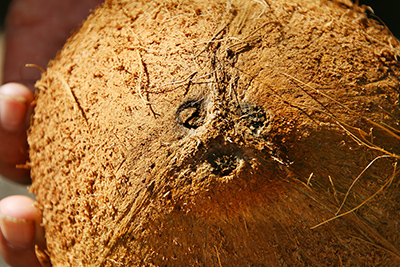
Q: Is there an easy way to crack a coconut and get the “meat” out?
A: Yes there is, and no hammers, chisels, drills, saws, screwdrivers, nails, or vices, etc., are required. In fact, it’s kind of easy. You don’t even have to be Samoan; but first, let’s make sure everyone can recognize the “face” of a husked coconut — like the ones sold in some stores, and understand how to easily crack one open:
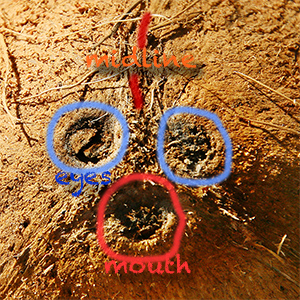
– Start with a husked coconut. Notice there are three ridges on the outside of the shell running from one end to the other and roughly dividing the nut into thirds. The ridges all come together in a small point at the “butt” end.
– We want the “face” end, which has three darker, circular plugged pores:
Looking at the “face,” you will see that one of the ridges always runs right between two of the “eyes” of the coconut’s face.
-The other two ridges fall on either side of the coconut’s “mouth,” which is the easiest and softest place to access the juice inside. Practically any pointed implement can dig through the “mouth,” even a strong fingernail on some coconuts.
-In the Samoan Village at the Polynesian Cultural Center our young men demonstrate cracking the coconut without draining the juice, but you may want to drink or pour it off first for other use.
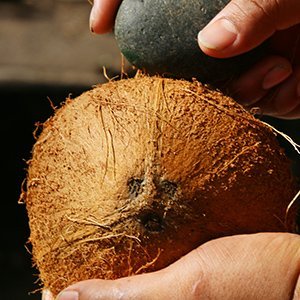
You’re now ready to crack open the coconut. Here’s how, if there’s still juice inside:
– Our Polynesian Cultural Center Samoan Villagers use a rock, but any solid tool should work — for example, the back of a heavy-bladed knife.
– Hold the coconut in one hand with the ridge-between-the-eyes up.
– Strike perpendicularly across that ridge midway between the “face” and “butt.” One solid blow should crack the coconut all the way around. If not, give it a few additional but gentler taps; or turn it and try the same perpendicular blow across one of the other ridges.
– A this point you might have to put the striking object down and twist the two halves of the coconut apart.
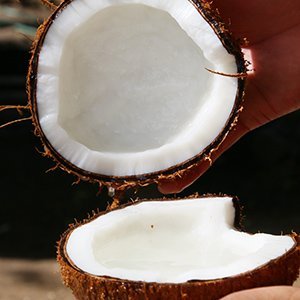
Here’s a secret to try if there’s no juice inside:
– Put your thumb over the pierced “mouth,” then follow the directions above. Blocking the air inside the coconut with your thumb creates extra air pressure when its struck, making it easier to crack.
– And if you don’t have a “tool” to strike the ridge between the eyes, accomplish the same thing by swinging the whole coconut into a rocky edge, for example a cement step, edge of a brick wall, etc., so it strikes the ridge perpendicularly. It should crack right open (remember the thumb-trick if you’ve already poured off the juice).
Niu vs. Popo
Next, let’s distinguish between young usually-green coconuts, which Samoans call niu, and mature brown ones (like the ones sold in stores), which they call popo.
– Young niu shellsare softer than popo shells, and can be cut open with a sharp knife.
– The meat inside a truly young drinking niu ranges up to about a quarter-inch (about .6 cm) in thickness. It’s usually soft — maybe even gelatinous, sweet, and delicious to eat straight out of the shell. Some people use a spoon to easily scrape it out. Don’t have a spoon? Islanders often use their thumbnails to push the young coconut meat away from the shell and then slurp it up.
– Popo meat, however, is another story: It’s usually about a half-inch thick (about 1.25 cm) and is very tightly attached to the shell. We’ve seen people try to gnaw it with their teeth, but human mouths aren’t designed to eat coconuts that way. No, it’s easiest to use a knife — not even necessarily a sharp one, which will tend to cut into the shell. In fact, a butter knife is perfect.
Here’s another secret:
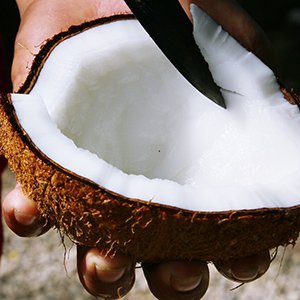
– Assuming the popo has been been successfully cracked in half, hold one half in the palm of your left hand (“lefties” reverse this), butt or face against the palm with the meat-side up.
– Grasp the (butter) knife in your right hand — like you’re shaking hands with it, and gently press the tip into the meat until it touches the inner shell on a shallow angle or bias.
– Push the knife downward on that same angle for at least an inch or so (about 2.5 cm).
– Stop, then quickly rotate your right wrist to the outside . . . and a chewable-sized slice of coconut meat should pop right off the shell.
– Rotate the shell in your left hand an inch or so, and repeat the slicing and “popping” motions on an angle.
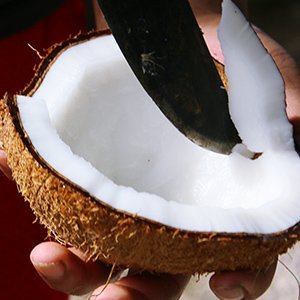
That’s it. Samoans call this maneuver sali popo. Medium-sized kids should easily be able to do it. Indeed, some islanders can cut all the meat out in one long strip. Give it a try the next time you have a popo in your hands. The pieces can be eaten fresh out of the shell at that point, but remember to pace yourself: They’re loaded with rich coconut oil.
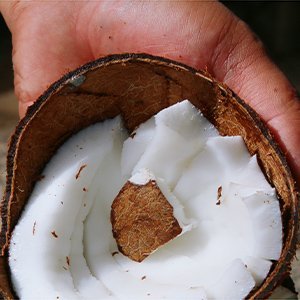
Using it all up
Finally, empty coconut shells can still be used at this point: They make excellent firewood, or they can be crafted and polished into jewelry, other tools and/or a wide variety of objects.
Shop Polynesia! We’re NUTS over coconuts!!!
(Click on image to view products on our Shop Polynesia website)
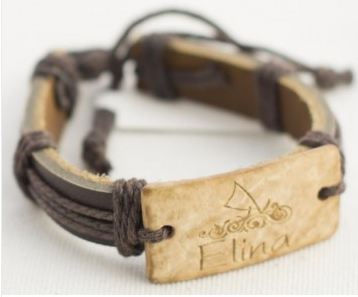
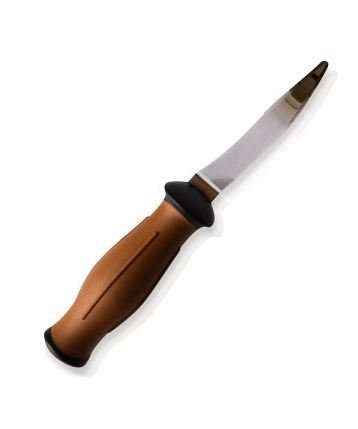

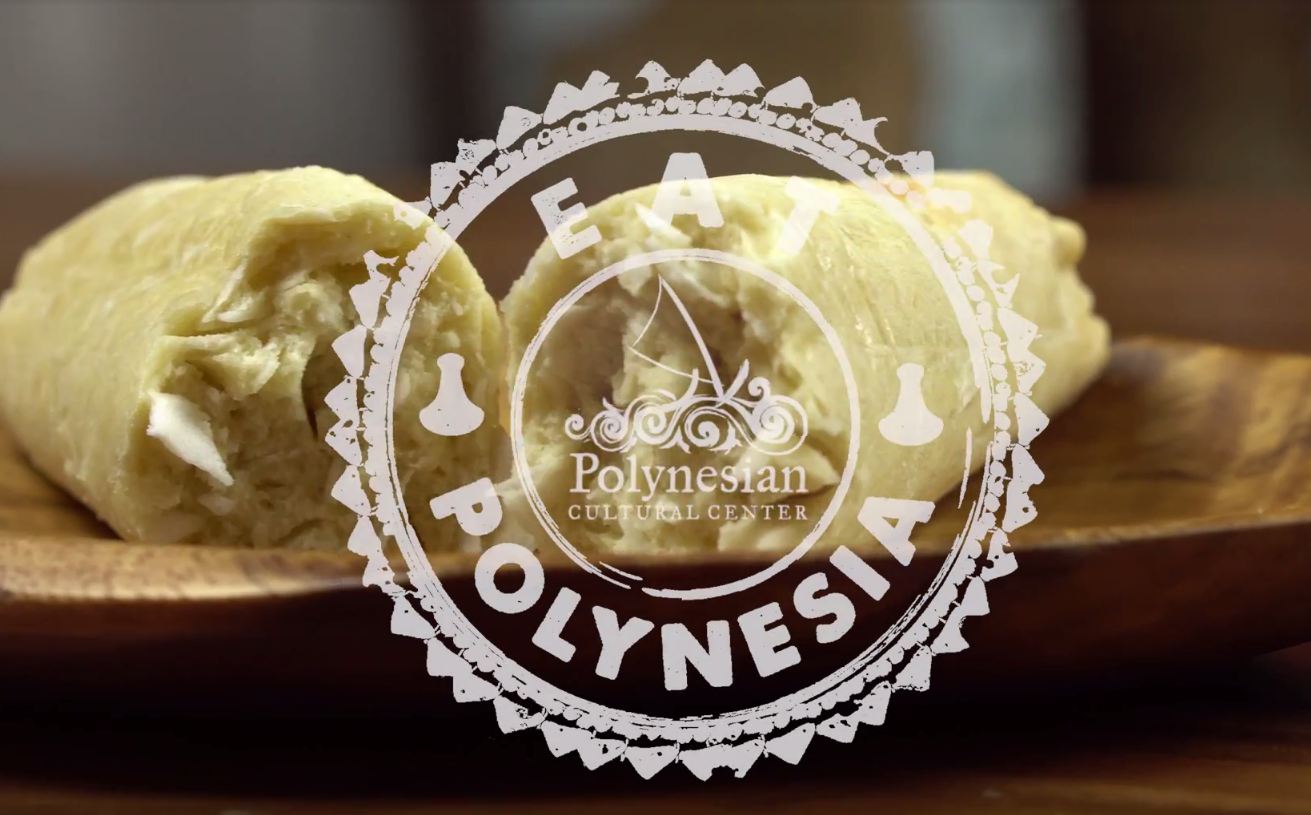
View our easy to make Tahitian Coconut Bread recipe direct from the Polynesian Cultural Center kitchens!
Story and images by Mike Foley

Mike Foley, who has worked off-and-on
at the Polynesian Cultural Center since
1968, has been a full-time freelance
writer and digital media specialist since
2002, and had a long career in marketing
communications and PR before that. He
learned to speak fluent Samoan as a
Mormon missionary before moving to Laie
in 1967 — still does, and he has traveled
extensively over the years throughout
Polynesia and other Pacific islands. Foley
is mostly retired now, but continues to
contribute to various PCC and other media.


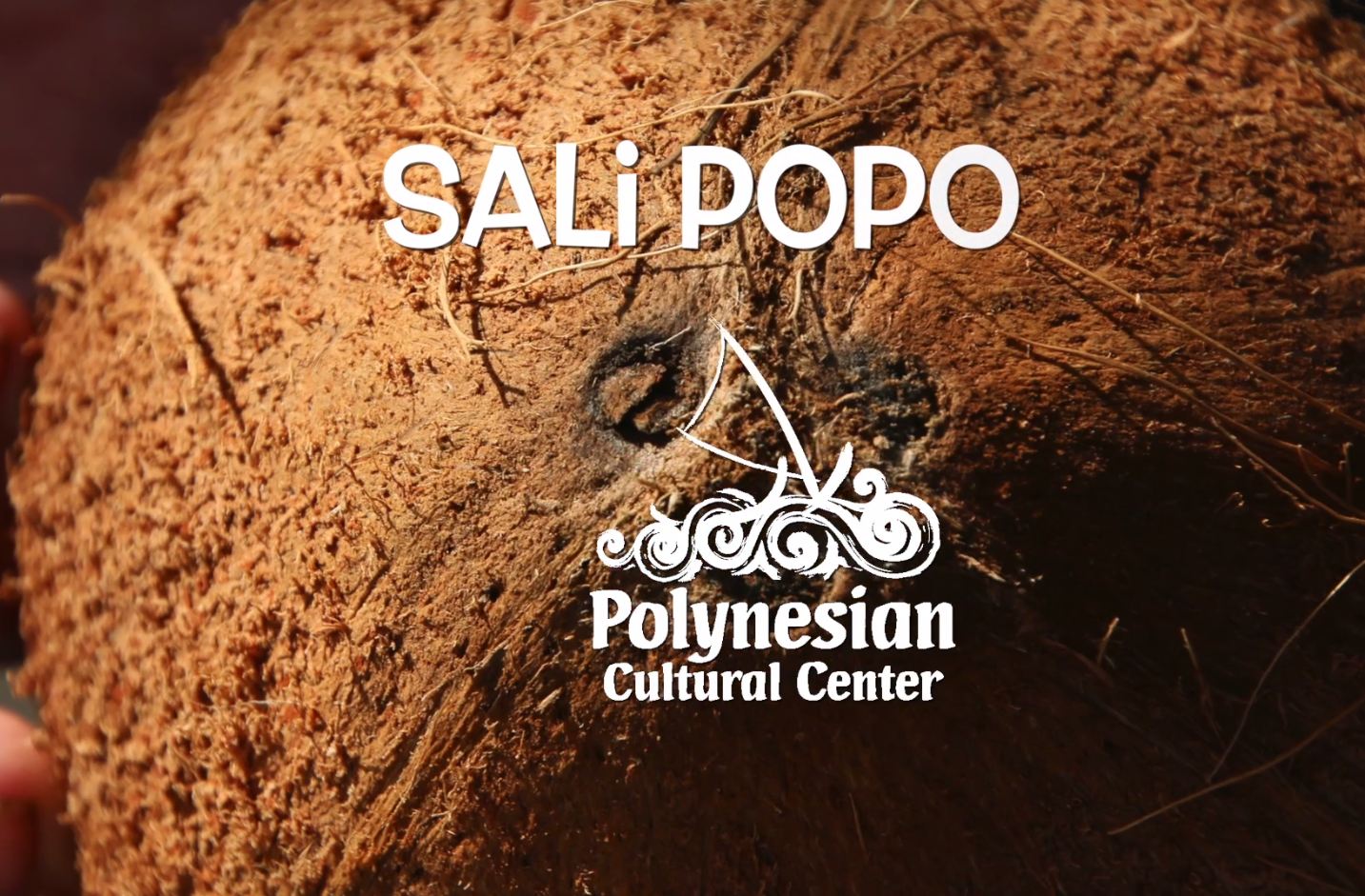
Hi! Thank you for the very detailed instructions on how to open up coconuts. I wonder if there is an easy method to remove the thin brown skin left on the outside of the coconut meat once the outer hard shell had been removed? I know that it can be cut off very laboriously with a knife, piece by piece, but I am sure there must be an easier way to do this.
What a great question. I’m going to reach out to our resident experts from the Samoa Village and see if I can get an answer. Hope to be back soon with an answer!
Our Samoan staff sends you their greetings! Steve Laulu, who manages the Islands at the Center asks me to share that “….What he wants you to know is that there is no easy way of removing the outer brown part of the coconut unless you painstakingly sit down and use a small sharp knife to cut it out. Kap Tafiti, our cultural advisor and lead presenter in the Samoan Village, shares that you could “try using a sharp vegetable peeler on large sections” and adds that “this part of the coconut is edible if that’s what you’re concerned about.” Hope this helps!
Thanks for the help! Does it need to be refrigerated after opening?
Absolutely! Even then, it should be used within 2 – 3 days. Left on the counter, you have about 2 hours. Hope that helps.
We found this article to be extremely helpful!!!!